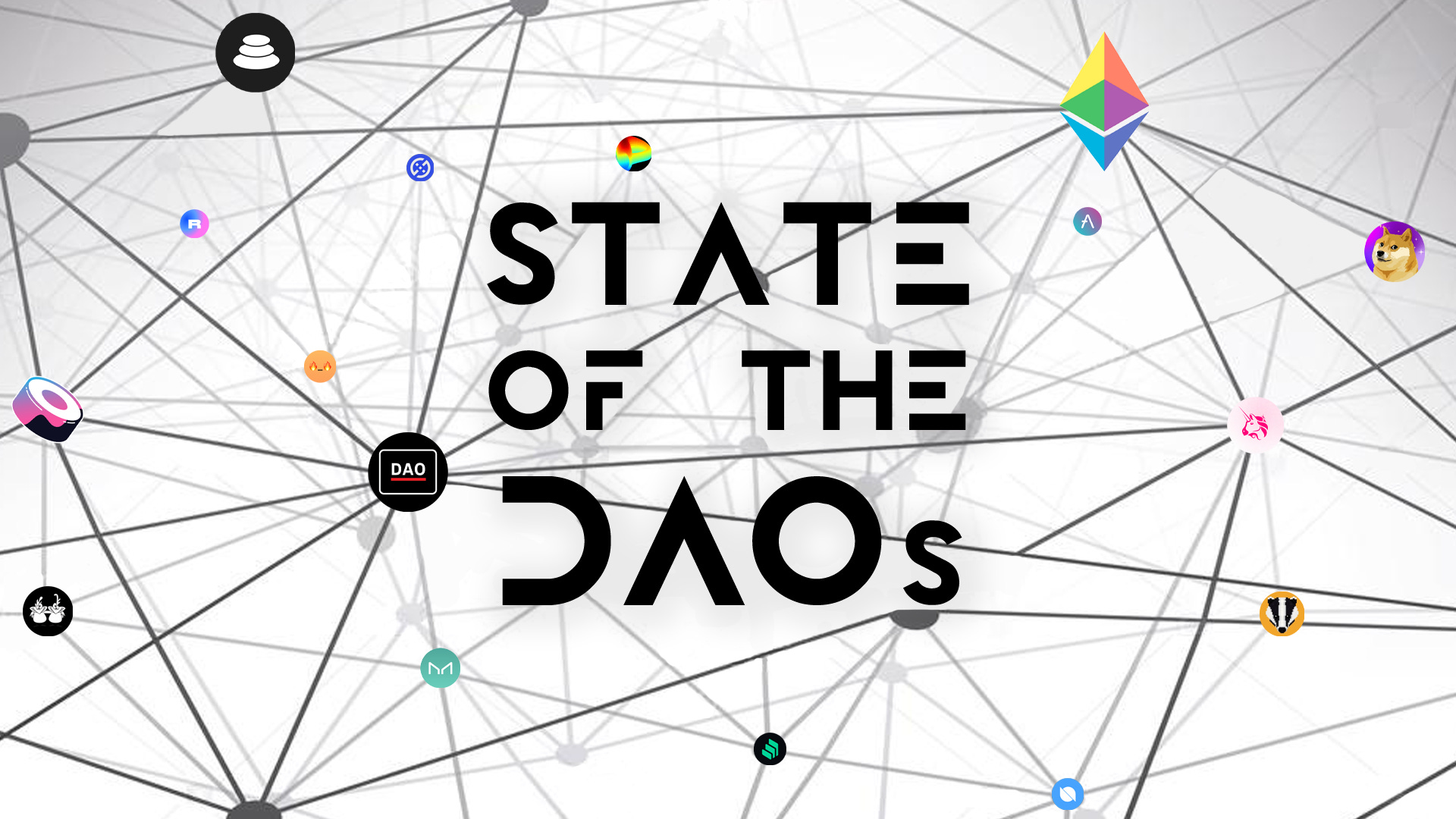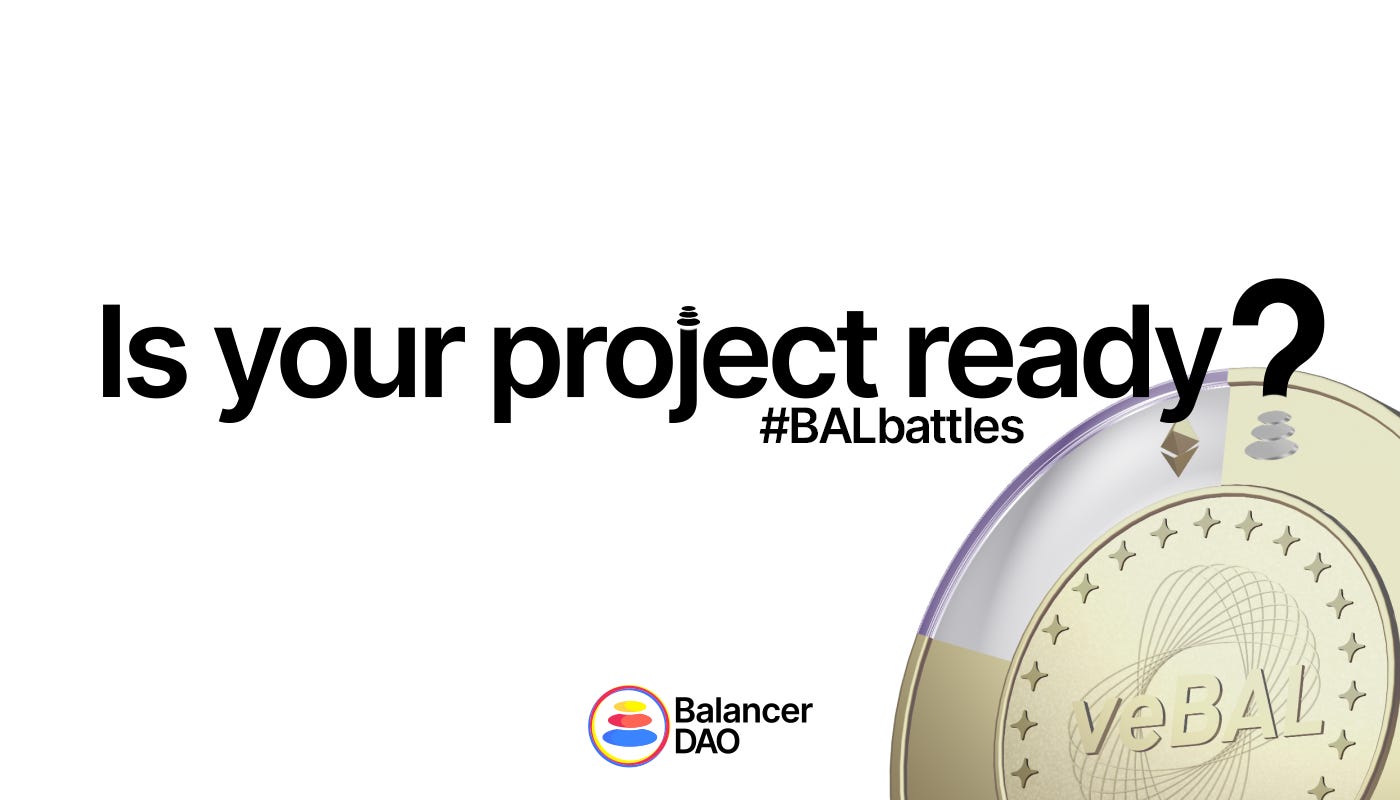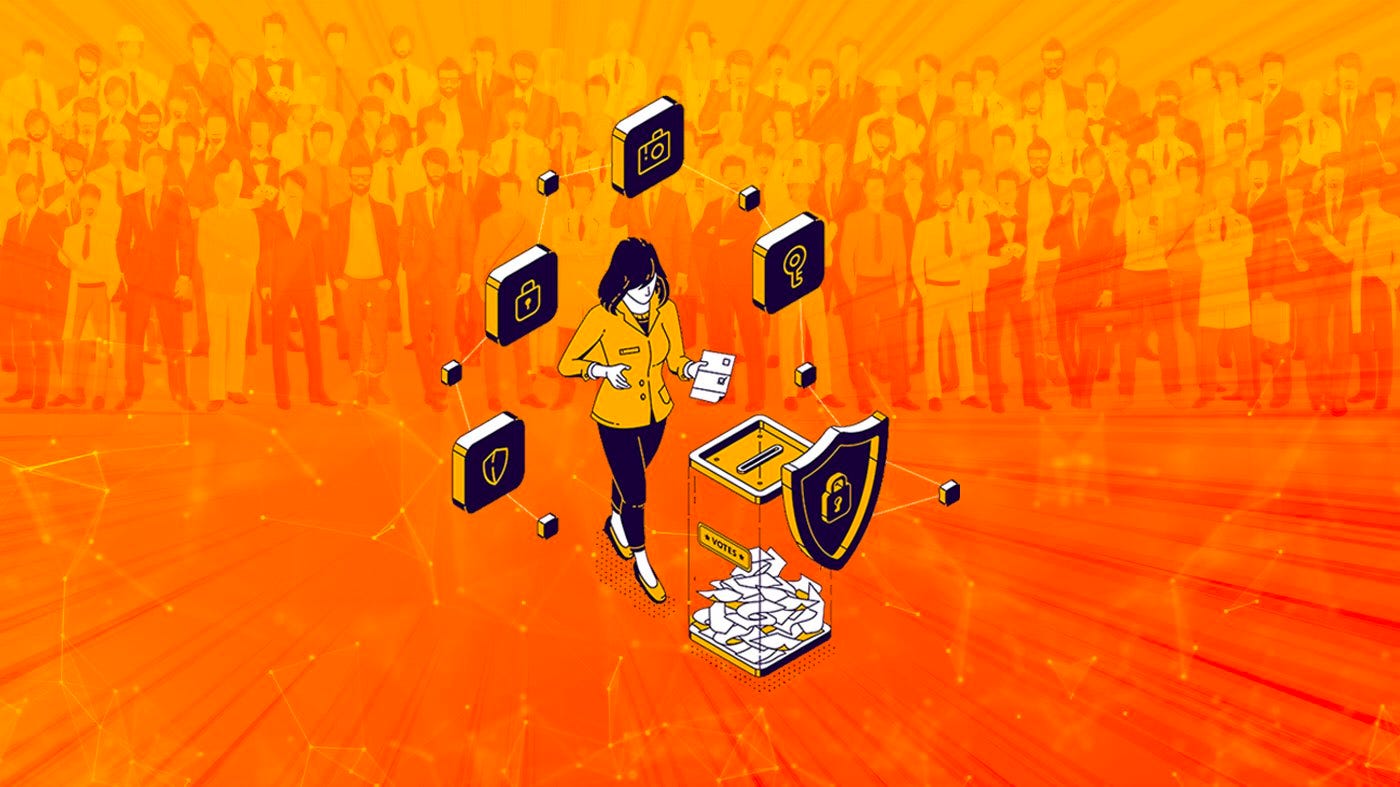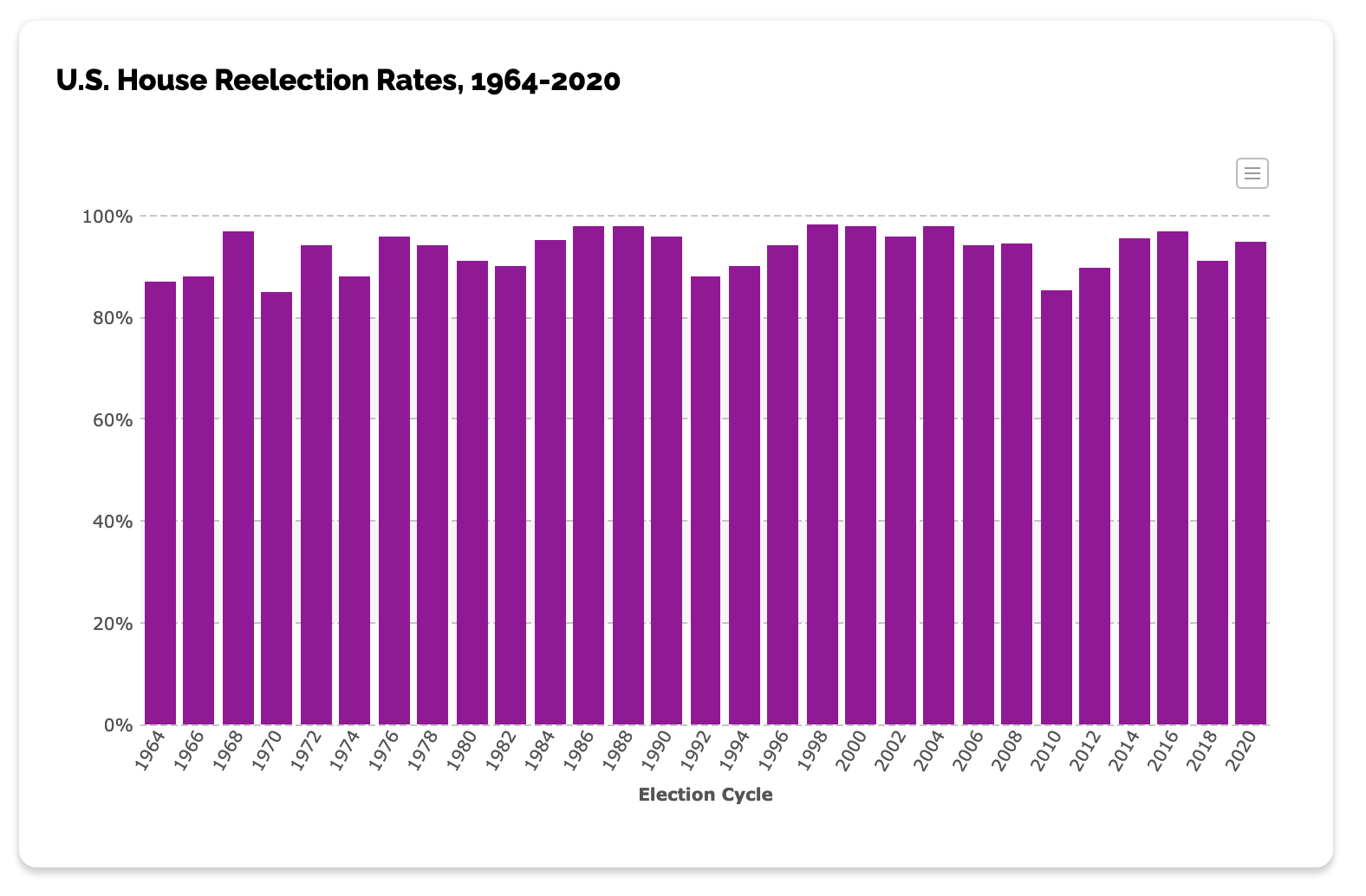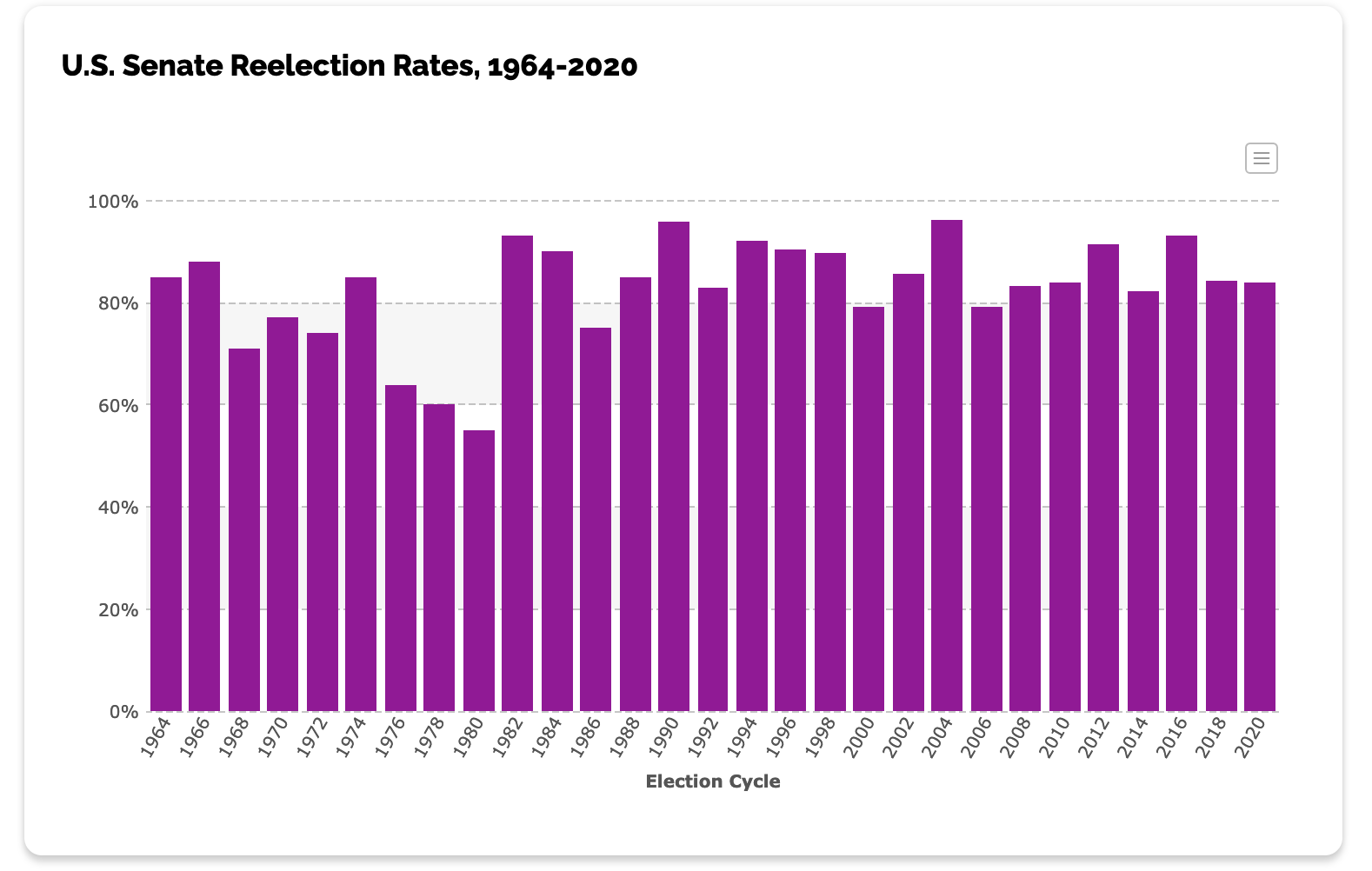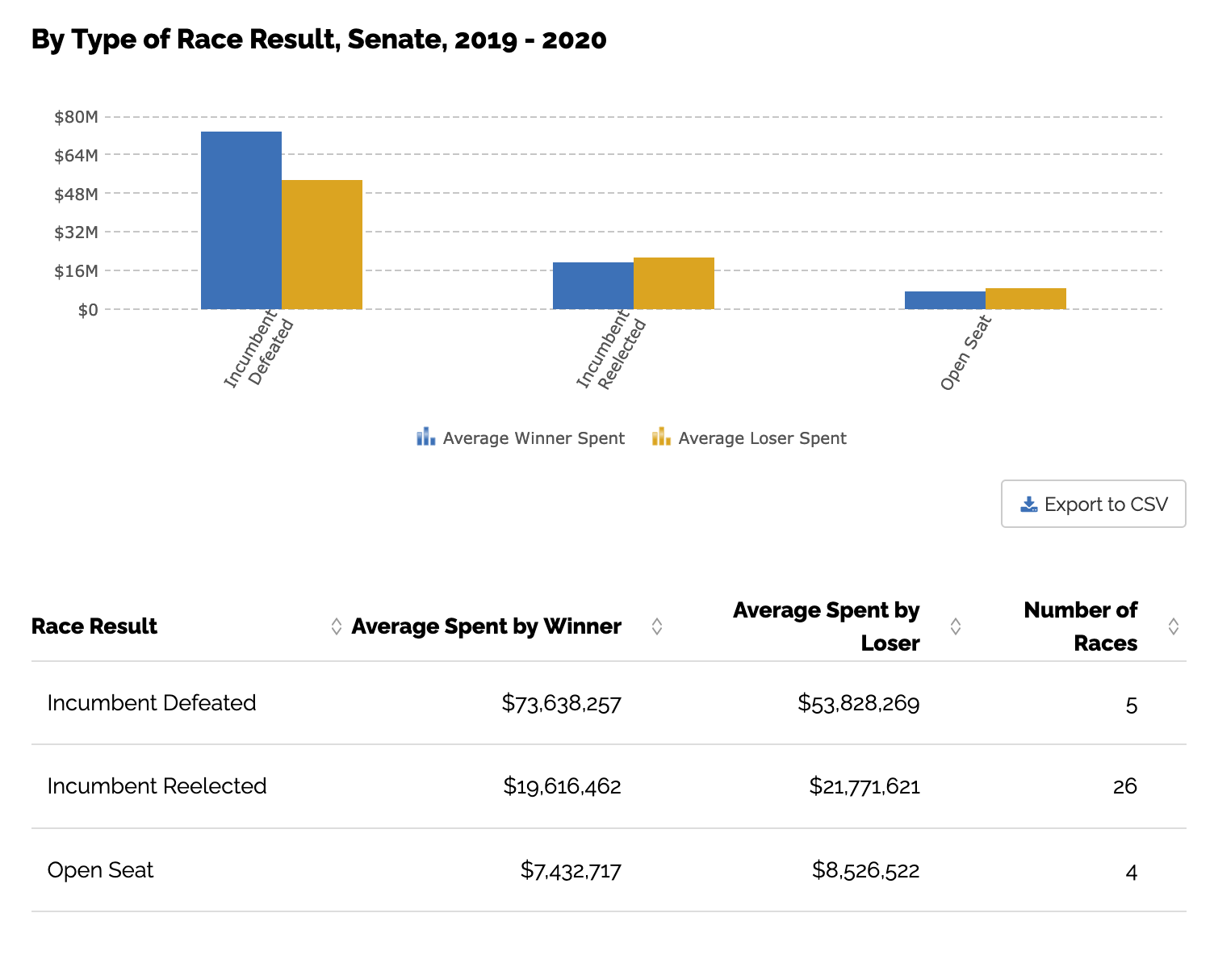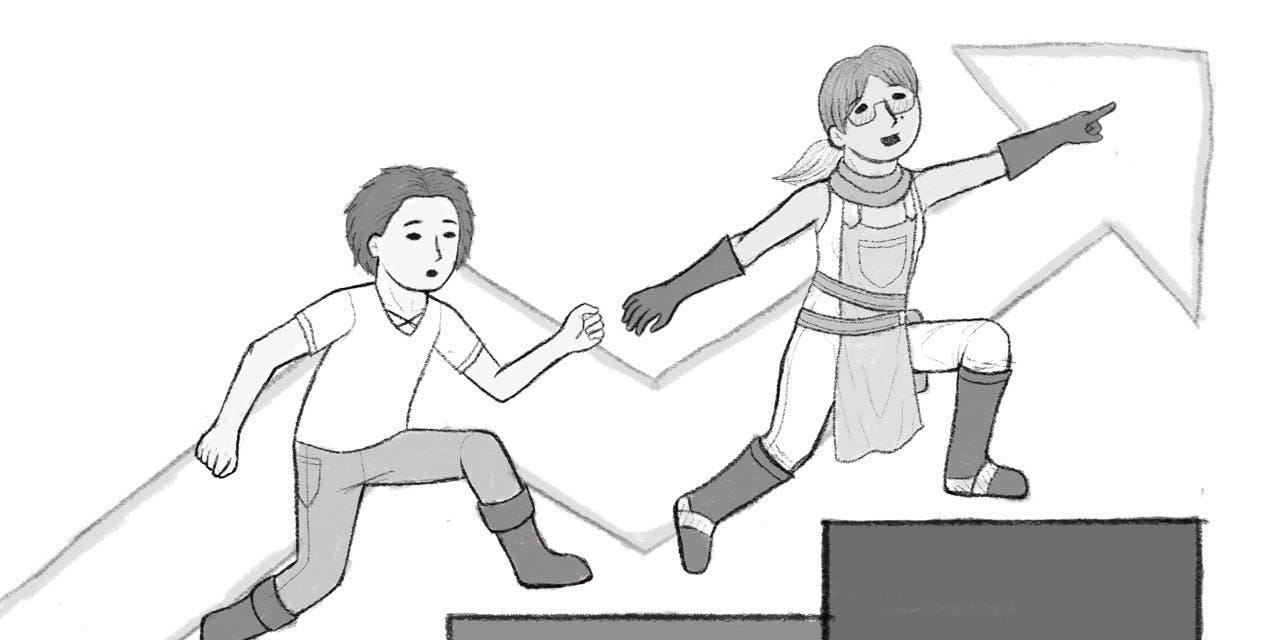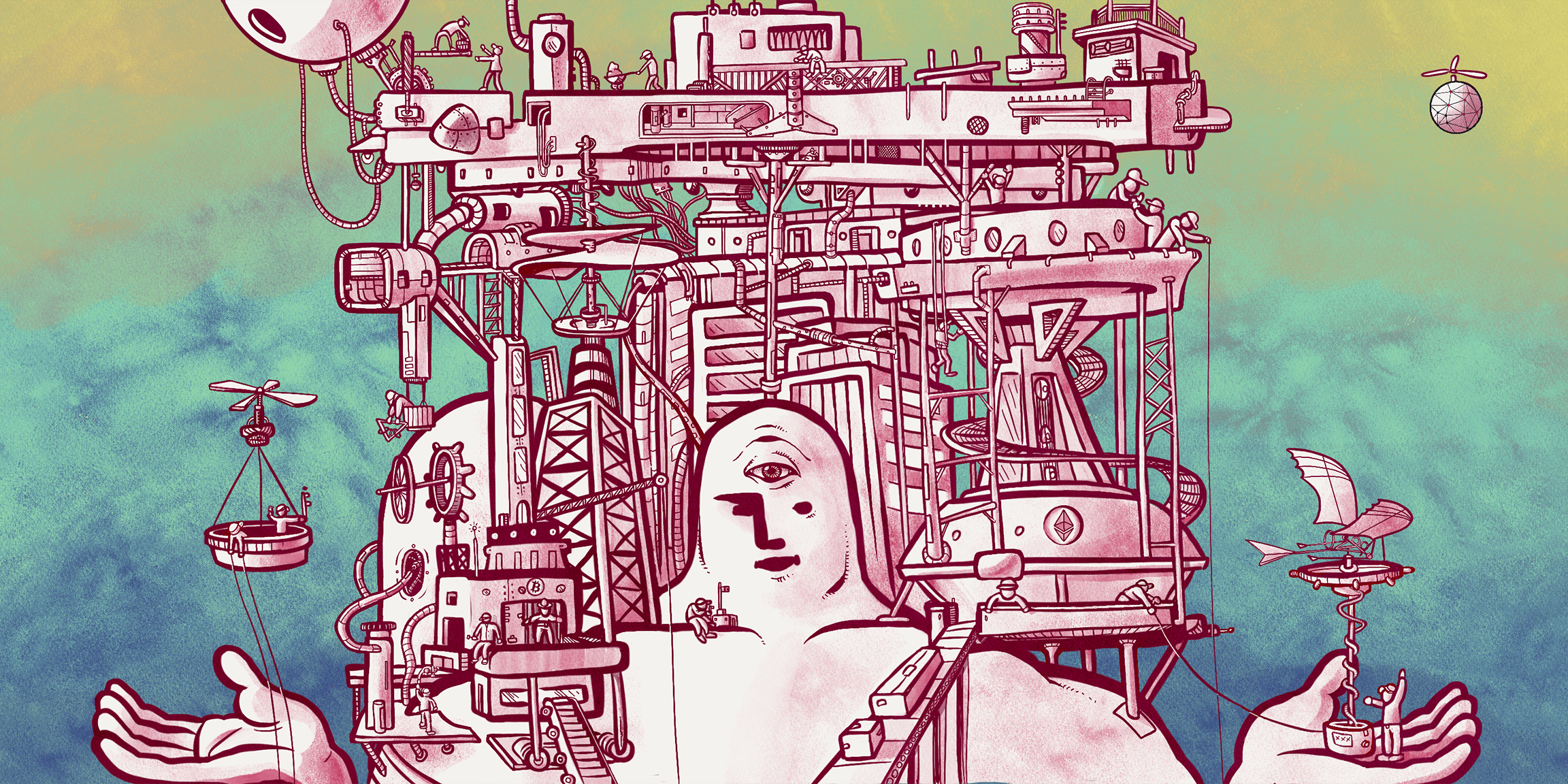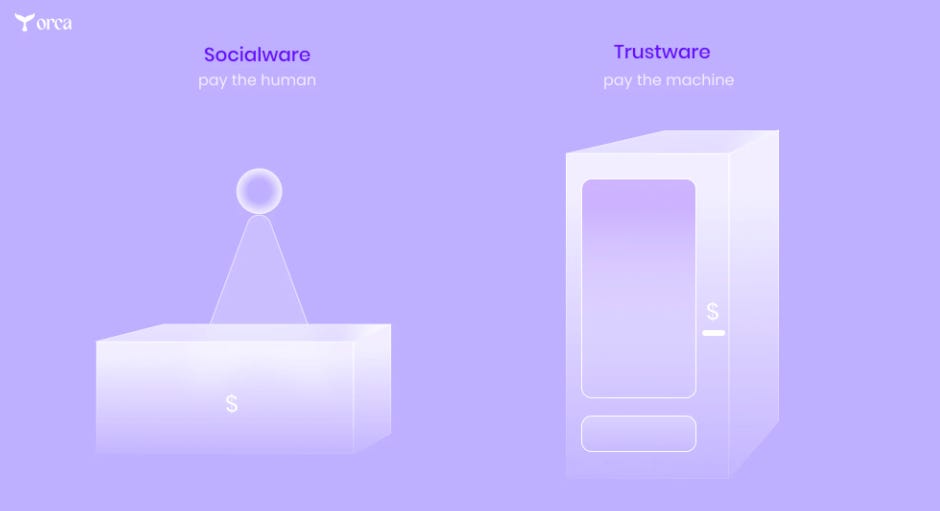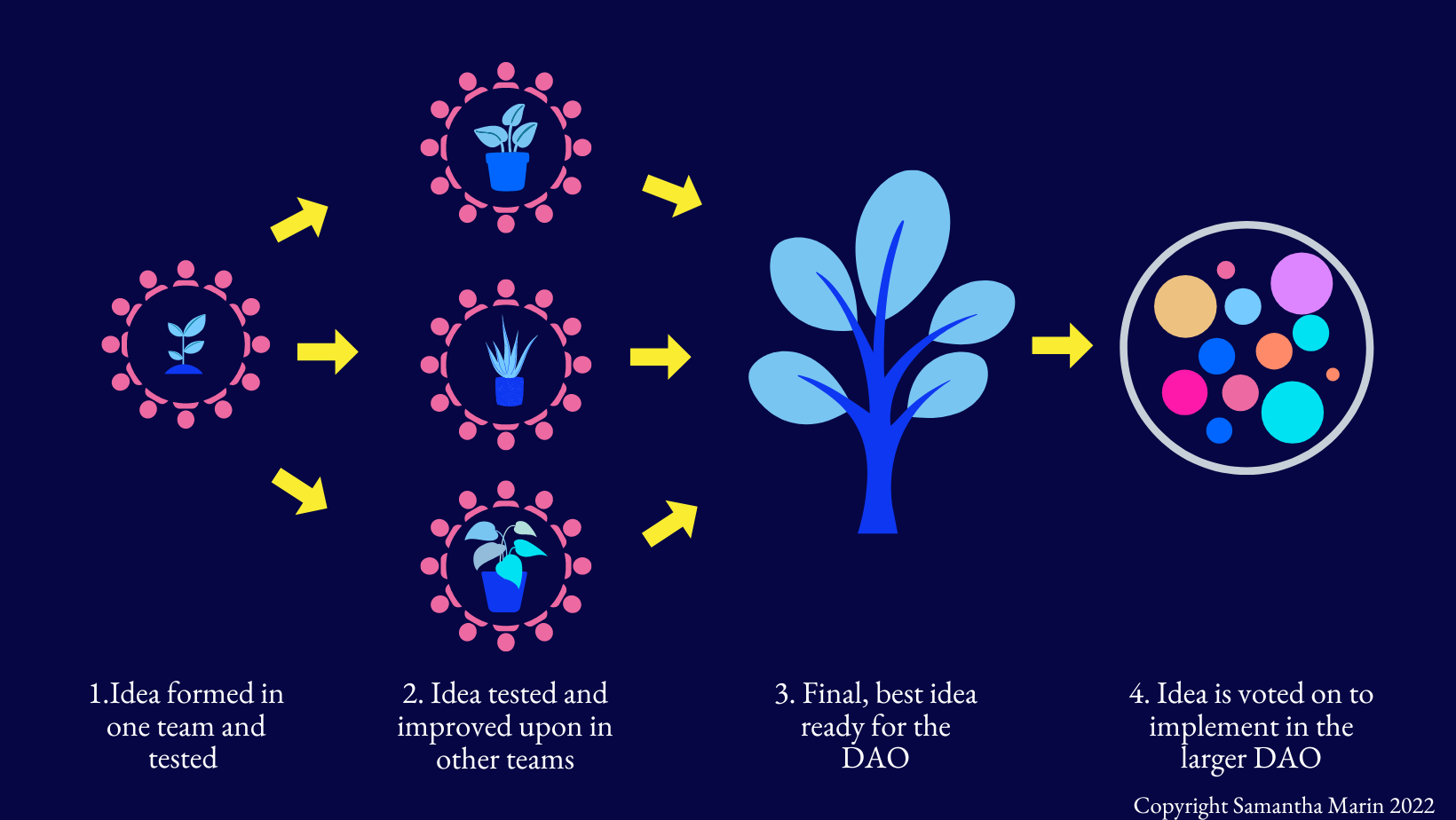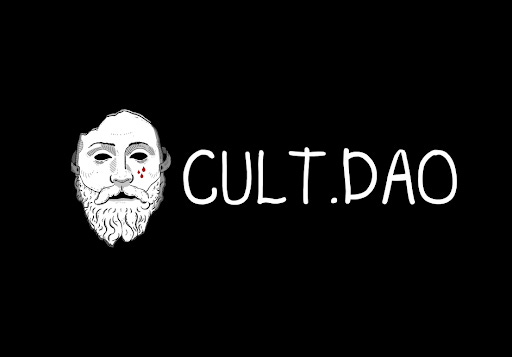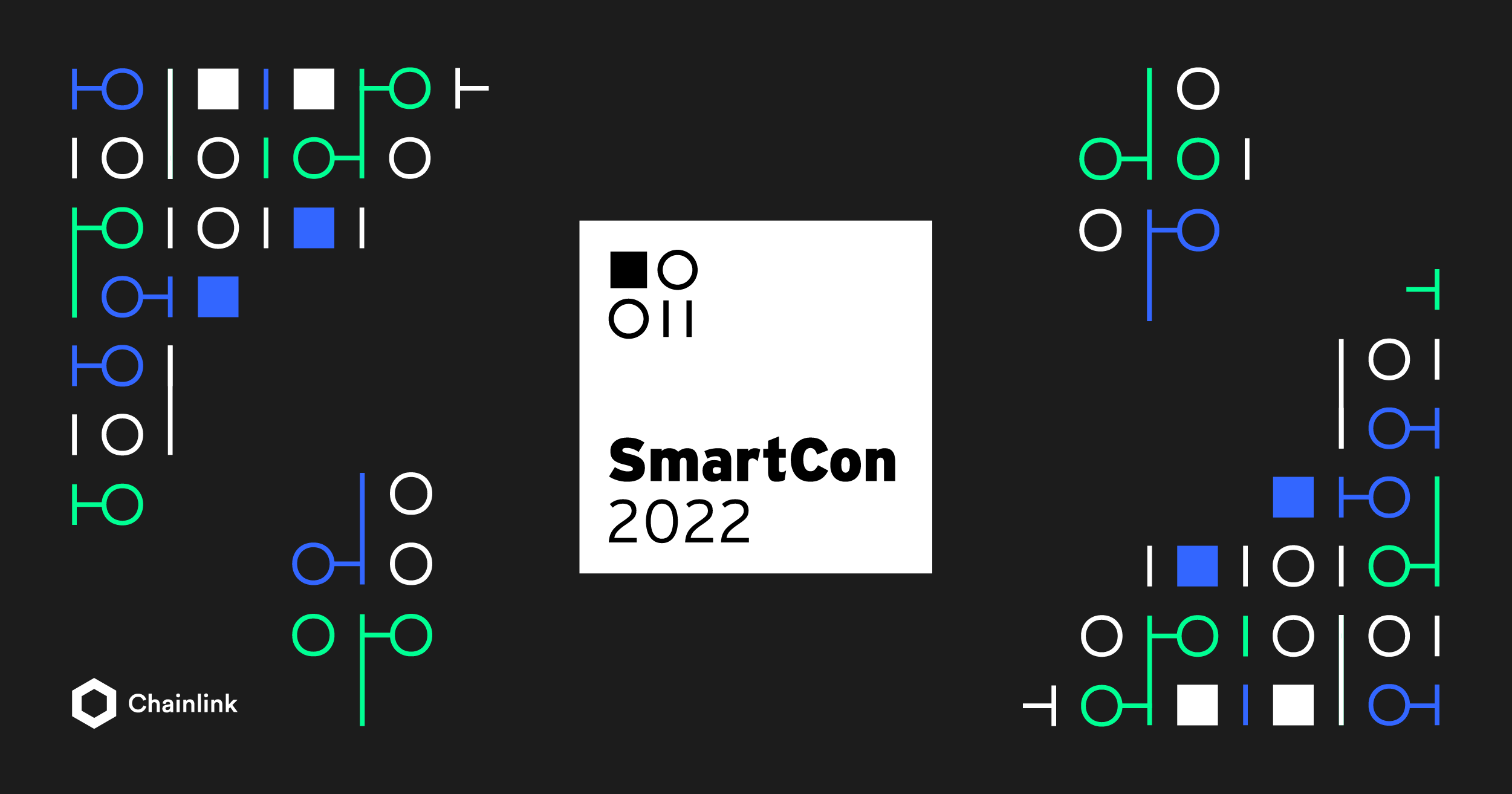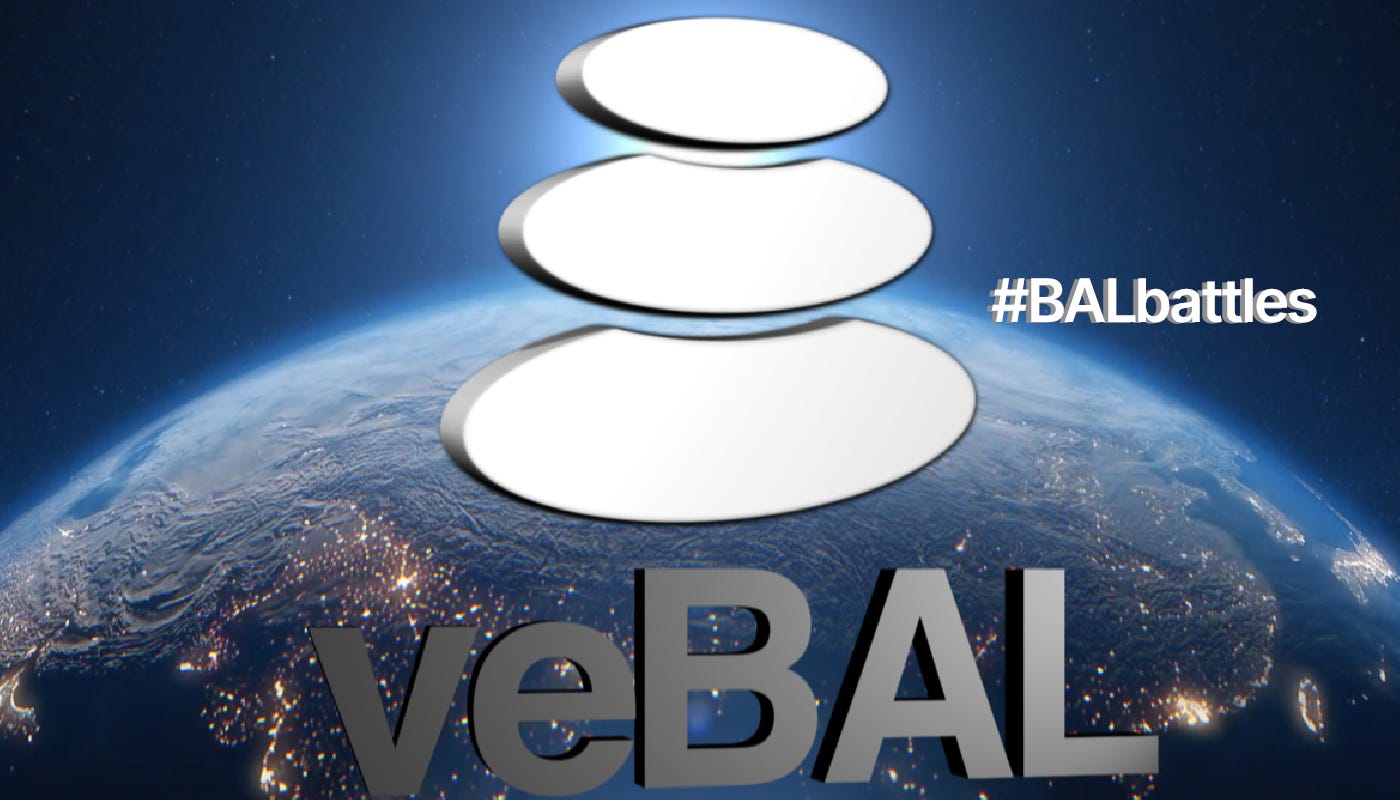Strategies for Delegated Voting in DAOs | State of the DAOs
Strategies for Delegated Voting in DAOs | State of the DAOsYou're reading State of the DAOs, the high-signal low-noise newsletter for understanding DAOs.gm gm and welcome to the State of the DAOs! There’s no denying it; the bear market is upon us. But if we perch on a high ledge and look out over a longer horizon to see where crypto is going, things are looking just plain rosy. Projects are launching every day, and protocols that have been around for a few years are showing us that they are built for the long haul. And then there’s DAOs. Unlike the bear market of 2017-18, when DAOs were still a novel concept, DAOs today are expanding their contributor lists and use cases. That’s right - DAOs are buidling. But with that building comes certain growing pains, even during a bear market. One of the issues that have beset DAOs, just fiat-space organizations, is less-than-ideal governance participation reflected in low voter engagement - Snapshot is less snappy and a bit through-shot. As we continue to work on DAO governance, a tried and true solution has emerged: delegated voting. Delegated voting is the idea that you can assign your voting rights to another who will engage in governance on your behalf. While many protocols employ this method, there are questions about whether it’s a good way forward. Fortunately, long-time contributor and DAO thought leader Samantha Marin is here to help. In this week’s article, she breaks down all the ways DAOs can get delegated voting right. How do DAOs prevent career politicians? What can we do to limit governance attacks by large token holders? Can we prevent delegate bribing and voter apathy? Samantha walks us through some solutions and reminds us that we’re on the frontier and experiments are welcome! After catching up on delegated voting check out the TL;DR on the latest DAO ecosystem takes and thought pieces, making it easy for you to cut through the noise and stay up to date on the world of DAOs. Although it’s a bit rough out there, the current state of the DAOs are just fine. This is the current state of the DAOs. Contributors: BanklessDAO Writers Guild (Samantha Marin, anointingthompson1, CuratedX, d0wnlore, Elemental, leah_par, WinVerse, Chameleon, hirokennelly.eth, siddhearta, Jake and Stake) This is the official newsletter of BanklessDAO. To unsubscribe, edit your settings. 🙏 Thanks to our Sponsor Strategies for Delegated Voting in DAOsAuthor: Samantha Marin
At an old wooden desk in 1880s England, the writer of Alice in Wonderland and The Jabberwocky was hunched over a manuscript. No, he wasn’t writing about Alice and the Cheshire Cat—that had long been published. He was penning a pamphlet on Parliamentary representation that would form the baseline of thought on liquid democracy. Liquid democracy, the idea that people can assign their voting power to different representative delegates at any time, is a type of delegated voting. In a broad sense, delegated voting just means that constituents entrust their vote to a representative who can vote or otherwise act on their behalf. Most democratic political systems use some form of delegated voting. It’s been well-documented that DAOs have a voter participation problem. To moderate an inherent tension of direct democracy, that not everyone reasonably can be expected to vote on everything, there's been a lot of talk about Lewis Caroll’s delegated voting model.  The idea is simple — assign your voting rights to a trusted community member who can vote with your tokens on your behalf. You enjoy the proxy voter participation and the delegate earns social and political capital for participating in governance. All good, right? But, I’m wary of using delegated voting without proper strategies and safeguards. Why am I wary of this seemingly best-case-scenario solution to voter apathy? Because we use a form of delegated voting in the U.S., and while there are many advantages, voters are historically terrible at re-allocating their votes when a delegate isn’t serving them well. For example, the American Congress approval rate is typically around 30%, meaning less than one-third of Americans approve of how Congress members are doing their jobs. But with that low approval rating, reelection rates are startlingly high. Reelection rates in the U.S. House of Representatives (two-year terms, representation based on state population) are generally over 90%.
The purple bars in the chart below show the percentage of incumbents re-elected each year. Reelection rates haven’t dipped below 80% in the last 56 years. And the Senate (six-year terms, two senators per state) is startlingly high, too. It’s typically above or around 80%, with a few years around 60%. But never 50% or below.
And for those who manage to unseat the incumbents? They need to put in a lot of effort and money to do so. Just look at how much more money challengers had to spend in the 2019-2020 Senate election cycle to unseat an incumbent: $73 million dollars. But for an incumbent to win, they only need to spend $19 million.
The takeaway: once someone is a delegate, it’s extremely difficult to get them out of that position, even if they have low approval ratings. Even though the trends of the United States are not representative of how the entire DAO space will operate, we should be looking at how existing representative democracies function if we are going to build blockchain-based representative democracies in DAOs. Given the inability of U.S. voters to unseat delegates, even when they don’t like what those delegates are doing for them, I foresee DAOs having the same issue. But I believe we can make delegated voting better. There are a few areas we can explore to prevent some unwanted results:
Delegate Term LimitsTerm limits place a cap on the amount of time, or number of terms, a delegate can serve. This prevents career politicians—people who turn politics into a full-time job and never venture to work in the “real” world—from taking over every office in the capital. U.S. voters largely believe term limits should be implemented in Congress. One survey found that 82% of voters would be in favor of term limits. Here, you get in an odd situation. The people who have the power to propose term limits are precisely the ones who would not want them. How, then, can you possibly remove ineffective incumbents? In DAOs with delegated voting, term limits should be put in place before delegates are chosen. You may be wondering: But why require term limits when voters can simply re-delegate their tokens whenever they see fit? That requires active DAO members who are keeping up with how their delegates are voting.  If DAO members aren’t voting widely now, how will they be keeping up with people voting for them? Imagine this situation. A charismatic-leader type of delegate emerges. The delegate often votes against the grain, and they become popular because of this. People delegate their tokens to them because the person resonates with them in some way. All is well: it’s important to have delegates who represent the will of the people. But then that delegate’s term limit ends. The charismatic-leader-delegate has to step down. But, since so many people supported them, there must be another delegate who had those same views coming down the pipeline, right? Surely someone will take up the mantle. But this is when the effects of the charismatic leader begin to wear off. No one quite fills the old delegate’s shoes. People aren’t interested in what the new delegate is doing. So, they slowly re-delegate their tokens. If there wasn’t a term limit, the charismatic leader would continue exercising power even if their “power” was simply their charisma, not the ideas that current voters want. And if the delegate was allowed to stay, they may begin to dissociate with the idea and simply focus on maintaining the following they’ve built. Think of any charismatic leader, and how “pure” their ideas remain over time. Term limits on delegated voting protect against the charismatic leader issue. Ideally, delegates would operate entirely in the open. Meetings and conversations would be made public. Voting choices would be shared—maybe delegates would write a couple sentences explaining their choice for each vote. This would help transfer knowledge to new delegates who must step up in their place. Delegates may not want term limits. And people may worry over loss of knowledge. But for delegated voting to work, I believe term limits are necessary. Preventing Delegate WhalesWith purely liquid democracy, it’s possible that delegates could get so much power that they control a massive percentage of tokens in the network. What if a single delegate controls 20, 30, 50, 70% of the vote? What could they use their power to do, especially if the token holders are checked out? The U.S. breaks delegates up geographically, so they would never be able to gain too much of the vote. But in liquid democracy and DAOs, there’s no stopping someone from getting an outsize portion of total votes under their control. And when that delegate controls a huge piece of the voting system, well, we’re screwed. Some solutions for this would be to cap the percentage of tokens that can be delegated to a representative. Otherwise, delegates may obtain a proportion that becomes so high they can 51% attack the protocol or organization. Alternatively, a DAO could set up a delegate “minimum.” Maybe there must be at least 50 actively voting delegates. There would still be a scenario of some delegates having much more voting power than others, but because there must be 50 delegates voting to reach quorum (the minimum number of votes or participants required to enact a vote or conduct business), there would be some degree of safeguard. Percentage maximums and delegate minimums may feel counter to the ethos of decentralization and self sovereignty, because it is placing constraints on the pure, unchecked “will” of the people. But if a delegate received so many token delegations that they could use their super-mega-whale status to abuse their power, then safeguards are needed. Preventing Delegate Bribing or Vote-SkippingAnother unfortunate scenario coming out of delegated voting is bribing. Delegates could potentially “win” voters by bribing them, such as with financial promises. You could imagine a situation where a delegate says, “Delegate your votes to me, and I’ll make sure a proposal goes through that gives you a good role in the DAO next season.” Or, “I’ll pay you X amount if you delegate your tokens to me.” With enough money, the system could be abused. The value of bribery could be mitigated by delegate percentage caps, as mentioned above. But even then, multiple delegates could collude and attack the DAO with their voting power. How do we prevent this? Firstly, there could be token slashing —which is when tokens are confiscated because of an unwanted action —for delegates who use bribes to gain power. The slashing would prevent people from choosing to delegate to someone who is bribing them, because they could lose their own tokens. But delegates would also shy away from bribing, knowing their voting power could evaporate in an instant. How would slashing be implemented, technically? I predict it will be difficult. Because there’s no trustless way to determine if someone is bribing (as far as I know), then there would need to be human intervention. Someone would need to manually block the delegated wallet from voting, which is against the ethos of a trustless system. How, then, could vote bribing be prevented? Social pressures could be used. In systems trying to operate in a trustless manner on the outside, trust-based social pressures on the inside tend to be the way to deal with squishier human issues that can’t be codified. (Coined “socialware” in this Orca piece.) In other words, there may need to be some “socialware” involved in order for delegate token slashing to work. For example, if a delegate was performing suspicious behavior, members of an operations guild or governance committee could ask people to remove their delegated votes from that particular delegate. This would be a form of social pressure—no delegate would fully be removed this way, because they’d still have their own tokens to vote with and maybe those of the people who did not want to apply pressure. But, given that social pressure does run many DAOs today, it could make an impact when needed. Delegates also may miss votes. For example, many of the top delegates for ENS DAO have voted in half or fewer of the proposals since the DAO started. In a blockchain, if validators get behind, they may be slashed. But, would a DAO really want to slash all of those tokens? Is it as critical as a validator in a blockchain? Again, we’d likely need some kind of socialware here. How many votes is too many to miss? Does that number change as the DAO matures? Again, slashing could be used, but it would likely need to be in the realm of humans, not code. I’d like to point out that there’s no concrete way for U.S. Senators or Representatives to get punished if they’re using sketchy vote-gaining tactics. Sure, there was a series of expulsions of Senators around the Civil War, but other than that, Senators and Representatives don’t get “slashed” or “banned” because they gave out a few favors to supporters along the way. They would get punished or removed from office if they violated the law or accepted a bribe (depending on what state you’re in). But politics in America is all about making promises and logrolling all sorts of stuff into bills that the public might never even see. I’m excited about the better forms of governance we’re building in DAOs. But, we’re treading into uncertain territory here. So, would preventative measures against bribing be groundbreaking? Maybe. Would it be possible to implement the necessary socialware to make it possible? Maybe. Are there more questions than answers right now? Definitely. Preventing Parties and FactionsOnce a DAO gets large enough, it’s easy to imagine factions forming. Just like a modern state, when large groups of people work together, factions naturally form. The oft-quoted Federalist Paper #10 by James Madison warns against the formation of factions, but says that “the latent causes of faction are thus sown in the nature of man.” In other words, we are naturally going to form tribes and groups based on our opinions, ideologies, and identities. Groups of like-minded individuals will naturally form — there’s no way around it. But what about when those groups start forming parties that lobby, fight, conceal, and hurt? That’s not the world we’re trying to build in DAOs. One option for factions is forking, a term typically used to describe blockchains, but that can be used in the DAO space as well. Unlike modern states, a group of like-minded individuals can relatively easily split into their own DAO if they’re not happy with the way their own DAO is run. Sometimes, forking can even be considered a growth strategy. As it gets more and more difficult to coordinate large groups of people within a DAO, the best strategy might simply be to start a new DAO out of the old one. Maybe if a small group of delegates were, naturally, going to start a faction, they would just fork the DAO and start their own. But forking does not come with the social capital, contributors, resources, treasury, token, and voting processes. Forking means you basically lose it all for the sake of building a DAO in the way you want it. I see forking as a philosophical alternative, but not necessarily a concrete, actionable one that will be used often. Blockchains can fork, but can DAOs, which are just made up of humans trying to coordinate, really fork? Another alternative to forking is rage quitting. This is when a contributor forfeits their stake in the DAO, essentially giving up their membership tokens in exchange for that token’s value. Rage quitting could look like selling your tokens on an exchange, or it could look like forfeiting your tokens or NFTs back to the DAO in exchange for your monetary stake in the DAO via a Rage Quit function, like DAOhaus. The problem with rage quitting is that it doesn’t take into account the human aspects of DAO work. What if you have a role and people are depending on you? What if that’s your main source of income? What if you don’t have a job lined up next? There are so many factors that go into the simple idea of “rage quitting,” that I don’t know if this is a good solution for preventing factions and parties. But I do think forking and rage quitting should both still be options, even if they might not be employed very often. Like DAOhaus said, rage quitting is a right. My reservation is this: I wonder if people will truly give up everything they have in their DAO to exercise that right. DAOs as Grand ExperimentDAOs are the grandest voting experiment we’ve had in centuries and we can use them to test hypotheses that we can’t in fiat-space politics. There’s a big problem with states: you can’t experiment. The stakes are far too high. So, even though there are frequent pleas for eliminating the electoral college, or using ranked-choice voting to prevent extremism in parties, or using a multi-party system in the United States, the reality is that most of those ideas will never be tested because the cost of experimentation is too high. In DAOs, we can actually experiment. We can actually try new governance systems with a small group of people without having to overhaul a state’s entire system. And we have that opportunity with delegated voting. And, we have the time to do so. The sky won’t fall on DAOs if we take another few months to iron out details of delegated voting that will pay off years and centuries in the future. Bear markets are for building, and it looks like we may have time on our hands that we can put to a great purpose. We don’t need to use a basic system without putting thought and planning into it ahead of time. We can create a delegated voting system that truly works for everyone: whether it’s Lewis Carroll’s concept of liquid democracy, or something that hasn’t been thought of yet. As the tech advances and voting experiments are put to the test, we might come up with something just as otherworldly as Carroll’s Alice in Wonderland and as advanced as his voting schemes. Author Bio: Samantha is on the Communications team at Aragon, and is working on transitioning the entire Aragon Network into a DAO. She writes about DAOs in the Quorum Newsletter. Actions steps📖 Read Building Better Compensation Frameworks in DAOs | Samanthaj ⛏️ Dig into Harnessing the Hive Mind | Jake and Stake 🎧 Listen Collective Organization with Pia Mancini | The Green Pill 🙏 Sponsor: Balancer DAO- #BALbattles begin! DAOs at a Glance
 DAO Entity Matrix | ParadigmAuthor: Paradigm Paradigm charts out a DAO matrix where differentiating several types of DAOs based on their formation, across the breadth of function, governance, taxation, fundraising, and a lot more. Paradigm team has made a simple and structured resource for DAOs across different legal structures and jurisdictions in the US and several other regions. This is a great foundation for DAO summoners and anyone curious about starting or categorizing DAOs. They draw parallels between forming corporations in the Web2 world andWeb3 DAOs. With different variables to consider, including legal structure, profit/non-profit model, capital structure, and organizational modularity. All these structures are compared using different parameters like usage, relationship of token holders to entities, formation & administrative requirements, personal liability of holders, governance, taxation etc. Paradigm provides a well-drafted matrix that makes it easy to understand and evaluate structures across DAOs and helps founders choose potential legal structuring solutions for DAOs. Level Up: Presenting the Future of Education as a Game, and How It May Take the Form of a Web3-powered MetaverseAuthor: Bianca Mikaila The current education system cannot cater to the interests of young people today. Schools are more focused on rote learning and good test scores than creating environments where young people feel enabled and can explore their interests. Instead, students are filling this hole by spending time in online communities centered around gaming and arts and doing activities they find meaningful. The internet as we know it has served as a learning venue for most, from Youtube and Reddit to educational platforms like Coursera. They’ve all proved a lot more useful to personal learning but there’s still a lot of leveling up to do. This is where web3 and the metaverse can help. It has the advantage of value creation, community, and culture all of which are crucial for helping young people take ownership of their education. To design a progressive game, there are certain educational technology principles it must follow. It must be standardized in a way that gives users ownership, allows them to collaborate with each other, and is accessible to all. It must be able to execute difficult tasks so that non-technical users can find time and have room to play around with their creativity. DAO Leadership: Building on the shoulders of giantsAuthor: Mr. Nobody and Lisa Wocken The concept of leaders in DAOs is mostly frowned upon as DAOs are supposed to be decentralized, community-governed, and without hierarchy. Mr. Nobody and Lisa Wocken from TalentDAO have dug deeper into the leadership rabbit hole and published a superb guide that shows how DAOs can embrace the concept of leadership in their day-to-day operations. The current perception of leadership revolves around the top to bottom and individual dynamics. DAOs are introducing an interactive leadership dynamic where people lead one another and have cultivated a culture of shared and flexible leadership. Leadership in DAOs relies more on taking action than on titles or concepts. When a person is chosen to lead by the community, it’s usually as a result of the amount of work they’ve put in. It takes at least three factors for shared leadership to emerge in DAOs: shared purpose, social support, and voice. There are also certain leadership behaviors that can influence individual outcomes in shared leadership: self leadership, people leadership, and task & change leadership. Leadership lies more in action and what you do than in who you are, the idea that people are born leaders is completely false and motivation is a prerequisite in leadership, those who enjoy leading, have a strong sense of responsibility and are able to look at the positives are more likely to emerge as DAO leaders. It often involves paying attention to people and their concerns as opposed to tasks. Leading tasks means putting in the work and doing all it takes to get it done. How We Can Encode Human Rights In The BlockchainAuthor: Nathan Schneider Nathan Schneider describes how the same tools that are used to bypass international orders today, can be used to implement better international systems. Smart contracts have the potential to create new layers of global social systems. Contracts where individuals are the protagonists. Blockchains could have human rights written into their basic protocols like Isaac Asimov famously outlined design “laws” that would prevent his sci-fi robots from turning on their makers. These new technologies should essentially come with safeguards to avoid causing harm to the human environment at large. Knowing that Lines of accountability can be hidden behind cryptographic secrecy, humans should be able to understand that no technology or innovation is capable of saving humanity from itself. No technology is beyond the human politics, therefore, neutrality when regarding human rights should be considered a stance against human rights. Blockchains could enforce labor rights, incentivize decarbonization, and impose targeted sanctions. They could establish a fairer, context-aware due process in order to enforce human rights rather than depending on some military power. Ecosystem Takes
 Scaling Trust in DAOs: Trustware vs SocialwareAuthor: frogmonkee, Julia Rosenberg and Chase Chapman 🔑 Insights: Many of us are in crypto, web3, and DAOs because of our declining trust in various institutions that govern our countries, finances, and media. Through DAOs we seek to establish a new framework of trust, first through bootstrapping with known socialware systems, then by codifying some of those systems into trustware. Scaling DAOs in this way, by minimizing reliance on humans as intermediaries, will allow us to scale in-sync with the rapid innovations in this space.
How Web 3 Changes PhilanthropyAuthor: Rhys Lindmark 🔑 Insights: Billionaires from web1 and web2 like Bill Gates and Mark Zuckerberg started philanthropic initiatives. Now web3 Has created top Billionaires like Changpeng Zhao "CZ" (Binance CEO) and Sam Bankman Fried "SBF" leading to a new wave of philanthropic potential energy. To get a clearer view on what will happen in the next decade, we'll keep at few things in mind.
Governance for better futures @SuperBenefitDAOAuthor: Alex Hannant and SuperBenefit SuperBenefit DAO has arranged a series of conversations with DAO members and founders to examine how the nature of governance changes with time and how governance can improve the future. The first conversation moderated by @ml_baldwin and @HeenalR was on 'meta-governance'.
DAO governance: move fast and experiment on thingsAuthor: Samantha Marin 🔑 Insights: To move fast and maintain progress in a DAO, some checks need to be made in the form of safe experiments. These experiments serve as a testing ground for governance, and when applied across the entire DAO system, will move the DAO to greater heights. Move fast and experiment on things.
Building a DAO to Learn in Web3Author: rahul iyer 🔑 Insights: Rahul creates a DAO called spicy duck, creating a minimum viable community to stay engaged in the crypto ecosystem. Creating a DAO to learn and invest in crypto was a natural way to get more friends engaged in web3, make money, and learn a ton along the way. Everyone who wanted to participate had to provide x ETH such that 1 ≤ x ≤ 10.
DAO Spotlight: CultDAOCultDAO is a decentralized investment platform with a focus on funding projects that are building toward a decentralized future. While much of the DAO’s origin is masked in mystery, its founder, Mr. O’Modulus, has published a powerful Manifesto that clearly lays out its inspiration, goals, and tokenomic structure. The CULT governance token smart contract has a built-in tax mechanism that automatically sends 0.04% of CULT involved in on-chain transactions to the CultDAO treasury. The collected funds are invested in projects in parcels of 15.5 ETH worth of CULT. Before distribution to projects 2.5 ETH worth of the 15.5 CULT tokens is sent to a burn wallet with the remaining funds set to be disbursed after the project meets the its requirements. As returns on investments come back to the DAO, 50% of funds are burned and 50% is split among those who staked CULT tokens. This aggressive token-burning system makes the token hyper-deflationary, increasing the value of the CULT that remains. Of the ~6.6 trillion CULT supply, over 1.7 trillion CULT has already been burned. In addition, CultDAO’s proposal and voting structure is designed to eliminate the ability of whales to control vote outcomes. CultDAO members need to stake their CULT tokens to vote. The top 50 stakers of CULT automatically become “Guardians”. Only Guardians can submit investment proposals for the DAO’s consideration, but they are excluded from voting. CULT stakers who aren’t Guardians are called “the Many”, and only the Many may vote on proposals. In short, whales can put forth proposals, but the outcome depends on the will of the people. The investment criteria are purposefully broad with a project needing to support at least two of three central tenets: it must fight against centralization; further the cause of decentralization; and/or directly benefit a noble cause. To date, the Many have approved investments in a diverse range of proposals, including:
Read the Manifesto to learn more about CultDAO, visit their website, connect on Discord, or follow them on Twitter. Get Plugged InEvent HighlightsSmartCon 2022 — Hosted by Chainlink — There will be two full days of keynotes, panels, developer workshops, and AMAs featuring leading projects and speakers from across the blockchain ecosystem. You’ll get insight into the latest Web3 developments directly from researchers, developers, and founders at the forefront of smart contract innovation. This event will be held live in New York City, New York and virtually from September 28-29. 🧳 Job OpportunitiesGet a job in crypto! Do you like solving hard problems, care about building more efficient markets for everybody, and want to work at the frontier of decentralized finance? Rook is looking for full time contributors, with salaries ranging from $169,000-$722,000. There are positions ranging from engineering, recruiting, product marketing, copywriting, and design. Sound interesting? Sign up for our referral program and go full-time DAO.
🙏Thanks to Our SponsorBalancerBalancer is a flexible and versatile Automated Market Maker that enables efficient trading and the exchange of any combination of ERC-20 tokens permissionlessly. Balancer also turns the concept of an Index Fund on its head: instead of paying fees to Portfolio Managers, you can now collect fees from traders who rebalance your portfolio by following arbitrage opportunities. The Balancer Protocol is a core building block of DeFi infrastructure — a unique financial primitive and development platform. If you liked this post from BanklessDAO, why not share it? |
Older messages
Sartoshi Vanished & Sherwood Film NFTs | Decentralized Arts
Tuesday, June 14, 2022
BanklessDAO Weekly NFT and Cryptoart Newsletter
The Secret Sauce of DAOs | BanklessDAO Weekly Rollup
Saturday, June 11, 2022
Catch Up With What Happened This Week in BanklessDAO
DC Comics, Snoop Dogg, and an Excursion Through Sunflower Land | Decentralized Arts
Monday, June 6, 2022
BanklessDAO Weekly NFT and Cryptoart Newsletter
Rari’s Permissionless Lending Markets | BanklessDAO Weekly Rollup
Saturday, June 4, 2022
Catch Up With What Happened This Week in BanklessDAO
The Stablecoin Edition | DeFi Download
Saturday, June 4, 2022
Your Trusted Source for 101s, Project Announcements, and Tokenomics Tutorials.
You Might Also Like
Crypto traders lose nearly $1 billion as US-China trade war overshadows Trump’s crypto reserve initiative
Tuesday, March 4, 2025
US trade tensions with China and allies spark $500 billion crypto market plunge despite Trump's crypto reserve plan. ͏ ͏ ͏ ͏ ͏ ͏ ͏ ͏ ͏ ͏ ͏ ͏ ͏ ͏ ͏ ͏ ͏ ͏ ͏ ͏ ͏ ͏ ͏ ͏ ͏ ͏ ͏ ͏ ͏ ͏ ͏ ͏ ͏ ͏ ͏ ͏ ͏ ͏ ͏ ͏
Analyst Spotlight Solana Overview
Tuesday, March 4, 2025
An in-depth look at Solana (SOL) and this week's market developments ͏ ͏ ͏ ͏ ͏ ͏ ͏ ͏ ͏ ͏ ͏ ͏ ͏ ͏ ͏ ͏ ͏ ͏ ͏ ͏ ͏ ͏ ͏ ͏ ͏ ͏ ͏ ͏ ͏ ͏ ͏ ͏ ͏ ͏ ͏ ͏ ͏ ͏ ͏ ͏ ͏ ͏ ͏ ͏ ͏ ͏ ͏ ͏ ͏ ͏ ͏ ͏ ͏ ͏ ͏ ͏ ͏ ͏ ͏ ͏ ͏ ͏ ͏ ͏
ETH Denver Conference Impressions: VC Indifference, Lackluster Narratives, and the Disillusionment of Idealism
Tuesday, March 4, 2025
Compared to last year — and even more so than the recently concluded Consensus — the overall atmosphere was much more subdued, with panel speakers noticeably outnumbering the audience. ͏ ͏ ͏ ͏ ͏ ͏ ͏ ͏
Trump’s crypto reserve faces backlash over ADA and XRP inclusion
Monday, March 3, 2025
Ripple and Cardano leaders embrace Trump's multichain approach despite criticism for altcoin inclusion. ͏ ͏ ͏ ͏ ͏ ͏ ͏ ͏ ͏ ͏ ͏ ͏ ͏ ͏ ͏ ͏ ͏ ͏ ͏ ͏ ͏ ͏ ͏ ͏ ͏ ͏ ͏ ͏ ͏ ͏ ͏ ͏ ͏ ͏ ͏ ͏ ͏ ͏ ͏ ͏ ͏ ͏ ͏ ͏ ͏ ͏ ͏
📈 Bitcoin dominance reached a 4-year high of 62%; Trump announced a strategic crypto reserve with BTC, ETH, XRP, …
Monday, March 3, 2025
Bitcoin dominance reached a 4-year high of 62%; Cronos becomes the first blockchain to power crypto-to-debit transfers; Trump announced a strategic crypto reserve with BTC, ETH, XRP, SOL, and ADA ͏ ͏ ͏
White House Schedules First Ever Crypto Summit
Monday, March 3, 2025
March 3rd, 2025 Sign Up Your Weekly Update On All Things Crypto TL;DR White House Schedules First Ever Crypto Summit SEC Declares Meme Coins Are Not Securities Consensys Secures Victory In MetaMask
VC Monthly Report, February Sees 14% Growth in Funding Amount and Deal Count, Stablecoins and Payments Dominate In…
Monday, March 3, 2025
According to RootData statistics, there were 98 publicly disclosed crypto VC investment projects in February 2025, a 14% increase month-over-month (compared to 86 projects in January 2025) but a 35.1%
Bitcoin’s steep decline fueled by short-term holders
Sunday, March 2, 2025
High-frequency traders and day traders rile Bitcoin market as prices plummet. ͏ ͏ ͏ ͏ ͏ ͏ ͏ ͏ ͏ ͏ ͏ ͏ ͏ ͏ ͏ ͏ ͏ ͏ ͏ ͏ ͏ ͏ ͏ ͏ ͏ ͏ ͏ ͏ ͏ ͏ ͏ ͏ ͏ ͏ ͏ ͏ ͏ ͏ ͏ ͏ ͏ ͏ ͏ ͏ ͏ ͏ ͏ ͏ ͏ ͏ ͏ ͏ ͏ ͏ ͏ ͏ ͏ ͏ ͏ ͏ ͏ ͏
Asia's weekly TOP10 crypto news (Feb 24 to Mar 2)
Sunday, March 2, 2025
According to Coindesk, citing local news outlet Dawn, Pakistan is planning to establish a National Crypto Committee to formulate cryptocurrency policies. ͏ ͏ ͏ ͏ ͏ ͏ ͏ ͏ ͏ ͏ ͏ ͏ ͏ ͏ ͏ ͏ ͏ ͏ ͏ ͏ ͏ ͏ ͏ ͏
On ICOs, NFTs, and Memecoins
Sunday, March 2, 2025
CRYPTODAY 143 ͏ ͏ ͏ ͏ ͏ ͏ ͏ ͏ ͏ ͏ ͏ ͏ ͏ ͏ ͏ ͏ ͏ ͏ ͏ ͏ ͏ ͏ ͏ ͏ ͏ ͏ ͏ ͏ ͏ ͏ ͏ ͏ ͏ ͏ ͏ ͏ ͏ ͏ ͏ ͏ ͏ ͏ ͏ ͏ ͏ ͏ ͏ ͏ ͏ ͏ ͏ ͏ ͏ ͏ ͏ ͏ ͏ ͏ ͏ ͏ ͏ ͏ ͏ ͏ ͏ ͏ ͏ ͏ ͏ ͏ ͏ ͏ ͏ ͏ ͏ ͏ ͏ ͏ ͏ ͏ ͏ ͏ ͏ ͏ ͏ ͏ ͏ ͏ ͏ ͏ ͏ ͏ ͏ ͏
